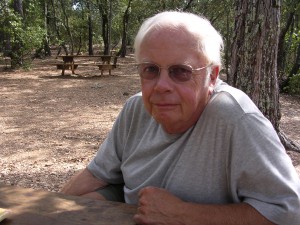In this recent series of posts, I’ve shared my most vivid remembrances. For me, this is a winter of remembering. So far, I have shared an embarrassment turned blessing from my pre-adolescence and a disaster turned major learning from my early adulthood. Now I turn to a life episode that was ready made for total chaos, but defying all odds became a touching story about service and trust.
It was the stormiest period in Evanston’s school desegregation history. This small city took pride its schools and colleges. As a part of the school district’s desegregation plan, all of the school attendance areas were redrawn so that the enrollment of African American children at each school was more evenly distributed to range from 17% to 25%. Almost everyone along the tree-lined streets of this close-in Chicago suburb was affected by the late 1960’s school busing that was necessary to achieve these targets. Whether you were a student reassigned from a formerly all-black school or a white parent whose child was learning “relationship skills” in a newly integrated school or simply a long-term resident of this community, you were at the very least aware that these were stormy and turbulent times for the Evanston Public Schools.
The storm’s intensity was most strongly directed at the school district superintendent, Gregory Coffin. Rightly or wrongly, the clash of these tempestuous times seemed to sound the loudest as citizens focused on the leadership style of the superintendent. Interestingly, but perhaps not surprisingly, many community members and parents didn’t bring up, and seemed to avoid, the underlying issues of race or the purposes of education. Instead they declared the superintendent to be “cut-throat, abrasive, and a non-listener.” Others would find him to be their champion of change. “He is able to see what needs doing,” his advocates would say, “and he does what needs doing.”
Many persons would have said that the school desegregation issue in Evanston came down to the contentious struggle regarding whether the superintendent should go or stay. The drama of this struggle took place on the stage of the city’s Unitarian Church, a building that could hold more people than the school district’s office – almost nightly, for months. At eight o’clock on many evenings, the school board would convene there in public session. Of course, there would always be other items on the agenda. But the raison d’etre for the regular gatherings was always the tenure of Greg Coffin. And almost always, the meeting’s adjournment occurred well after midnight. The street question the next day was often: “Did you attend the shouting match last night?”
Greg Coffin was so completely engulfed in this “struggle of his lifetime” (his words) that he had little time to orchestrate and oversee the day-to-day workings of the Evanston Public Schools. Such orchestration and oversight were left to Joe Hill, the associate superintendent; Frank Christensen, the personnel director; Ken Orton, the director of business affairs; and me. At that time, I was the director of curriculum and instruction. Basically, the four of us ran that 11,000 student school district for the better part of a year. Truthfully, we didn’t have a single leader.
Perhaps, this group of four became “the superintendent.”
The four of us started every day with what we called a “state of our world” meeting at 7am. We were exhausted, of course, often from the turmoil of the night before. But after a couple of minutes of “Can you believe what Sarah said?” or “Peter was so outrageous with his remarks,” we would settle down and set up the agenda for the day. We determined which schools each one of us would visit on that day; we rated the “teacher concerns” from one to five, identifying which concerns were most critical; we divided up the correspondence that needed response; and we made a list of who would call whom. We sought to provide a central office presence and to assure that the day was dedicated to the young people in our charge. And then we would leave the superintendent’s office with this pledge: Taking the lead from Joe and Frank, each of us would move through the day with a servant’s heart. We would be at the people’s beck and call. We would do what needed doing for the young people, for the teachers, and for the community. We would never say a disparaging word about anyone else in our foursome.
As I remember that year (1969, I believe), it was one of the few times in my work-life when I most experienced genuine trust. We four trusted one-another completely. There were no lies. There was no deception. There were no exaggerations. There were no partial truths. Nothing was hush-hush. There were no “arrangements.” What felt like madness swirled around us, but we experienced a kind of pure calmness. Among the four of us, there was no panic, there was no tension, and there was no despair. It was a time of telling the truth, and surprisingly, it was a time of laughter. As I recall those days, a smile comes to my face; I remember that year as one when I had the most fun on a leadership team. We joked with one another, we reveled in one another’s victories, and we somehow found our failures and mistakes to be cause for (what we’d call) a “crazy calamity occasion.” We had so many good laughs!
How is it possible that amid the chaos of what we called “the Coffin cacophony” we had a positive, peaceful, and productive experience? And why, in the midst of that chaos, would trust and laughter find such a comfortable home?
Well, for one thing, we had no choice but to make good things happen for those in our care. In our situation, there was little room for wondering, worry, or wistful waiting. And, the political battle that swirled around us was not of our doing, was beyond our control, and was at times beyond our understanding.
And then there was the matter of the makeup of our leadership team. Ken Orton was a true-blue kind of guy. Of course, he knew the numbers. I called him Careful Ken. He was good! And he was more than good. Ken was keenly and genuinely interested in everyone. Whether a school board member, or a teacher, or a member of the community, Ken Orton took that person seriously – did whatever was necessary to answer that person’s questions completely and thoroughly. Ken loved the work he did, but I believe he loved the people more.
Joe Hill was the soul of our community. Joe grew up in Evanston and was at the heart of the black community in a town that was, at the time, primarily a black and white city. He had an infectious sense of humor, a precious manner with all of the children, and had the respect and admiration of every Evanston citizen.
Frank Christensen was a mythical man. His human relations practices were of legendary proportions. For example, when a kindergarten child was preparing to step off to school for the first time, Frank would visit that child’s home a few days before that first day, spending substantial time with that child and with the family. Teachers received similar gifts of Frank’s attention. To this day, Frank Christensen is my ideal educator.
Of course, I did my part. I was “the new kid” within the team. But I gave it my all.
We served to honor the people. And, perhaps in the process, we found the perfect setting for trust – in the eye of the storm. We shared common values, we reflected respect for each other, we made information transparent among us, and we were in it together. Somewhat surprisingly, I learned that it’s possible to develop and live with trust in a time of crisis, a time when I – and perhaps others – might have thought that trust would not flourish.
As you think about your work or personal life, have you ever experienced a time when trust developed within difficulty? Have you ever been part of a team at your work place that was truly life-giving or you experienced as a gift?


